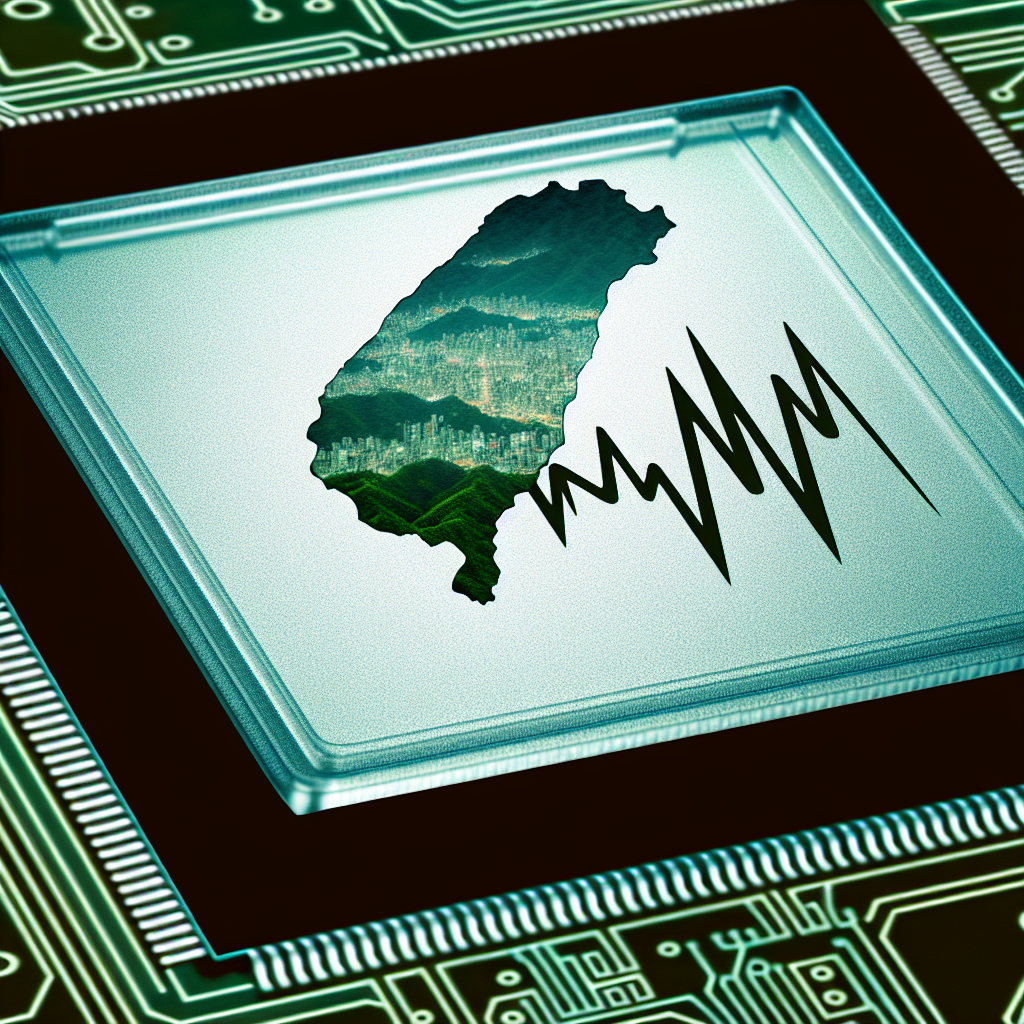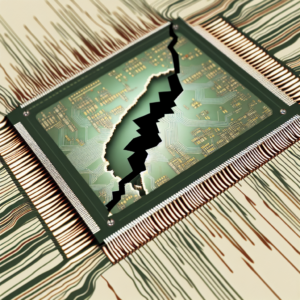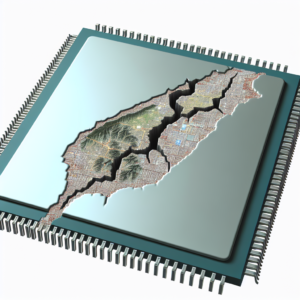Activities
Divisions
Programs
Activities
Divisions
Programs
TSMC forced to vacate factory due to Taiwan earthquake, potential disruption in chip availability, prices skyrocket
The heavy dependence on Taiwan for semiconductor production has been a significant worry for industry heads and government authorities for a while now. Consequently, multiple government representatives have been encouraging chip manufacturers to broaden and vary their production bases beyond Taiwan.
The cost of mobile phones, personal computers, and nearly all other electronic gadgets are expected to rise in the coming months. This is due to the significant earthquake, measuring 7.4 on the Richter scale, that struck Taiwan earlier today.
Following the most significant earthquake Taiwan has experienced in the last 25 years, Taiwan Semiconductor Manufacturing Co. (TSMC) along with its rival, United Microelectronics Corp. (UMC), have cleared out significant portions of their manufacturing sites. This move has caused doubts regarding the chip production at the world’s top producer of sophisticated chips.
TSMC, the main supplier of microchips for tech heavyweights such as Apple and NVIDIA, had to move their employees from particular zones. The company announced that it's assessing the consequences of the 7.4-magnitude earthquake that hit off the eastern coast of the island. Likewise, UMC halted production at some factories and cleared out its Hsinchu and Tainan centers.
Companies from Taiwan, such as TSMC and ASE Technology Holding Co., are leading players in the worldwide semiconductor industry, producing chips for a wide range of products, including iPhones and cars. It's believed that Taiwan is responsible for producing approximately 80-90% of all silicon chips that energize smartphones and AI-driven supercomputers, whether as completed SoCs or as silicon wafers.
In terms of geography, Taiwan is situated close to a significant fault line, where two tectonic plates converge. This puts it at risk of regular and occasionally highly destructive earthquakes.
Taiwan is often subject to earthquakes, and even small seismic events can impact Taiwanese factories. A single significant earthquake can potentially destroy whole sets of meticulously crafted semiconductors.
"TSMC's safety measures are operating as they should. In line with company procedures, specific manufacturing sites were cleared to guarantee the safety of our staff," the company mentioned in a press announcement. "We are presently evaluating the scope of the impact."
For years, industry leaders and government officials have been seriously worried about the excessive dependence on Taiwan for semiconductor production.
The COVID-19 pandemic intensified the worldwide scarcity of semiconductors, revealing the vulnerabilities within the international supply chains concerning silicon chips. Not only were industries globally confronted with a significant chip deficit, but the chips that were accessible were being marketed at three to four times their normal price.
Scalpers have been purchasing NVIDIA's GPUs, which are used in PCs for gaming, video editing, crypto mining, and now AI applications, and reselling them at prices ranging from 50 per cent to 250 per cent higher, aiming to make a fast profit.
In addressing these issues, global authorities are advising Taiwanese firms, such as TSMC, to spread out their manufacturing facilities to various locations, considering the possible risks to Taiwan's stability. Besides being susceptible to natural disasters like earthquakes and tsunamis, Taiwan has also had to grapple with an unpredictable and challenging China.
Search for us on YouTube
Popular Programs
Associated News
The danger of a tsunami has 'mostly dissipated' following a strong 7.4-magnitude tremor in Taiwan.
After Taiwan's 7.4 magnitude quake, Japan and the Philippines retract their tsunami alerts.
Are AI firms heading for a downfall? Professionals speculate that we're at the height of a bubble, set to pop.
'Power-hungry, challenging to collaborate with': Reasons for Silicon Valley investors shunning Sam Altman.
The threat of a tsunami has 'mostly dissipated' after a potent 7.4-magnitude earthquake hit Taiwan.
Post Taiwan's 7.4 magnitude tremor: Japan, the Philippines withdraw tsunami notifications.
Are AI businesses on the verge of collapse? Specialists infer we are at the zenith of a bubble, poised to explode.
'Obsessed with power, tough to cooperate with': The rationale behind Silicon Valley financiers now bypassing Sam Altman.
Locate us on YouTube.
Highlighted Shows
Connected Articles
The danger of a tsunami has 'mostly subsided' following a strong earthquake of 7.4 magnitude in Taiwan
Earthquake in Taiwan with a magnitude of 7.4: Tsunami alerts have been withdrawn in Japan and the Philippines
Are AI firms about to tumble? Analysts think we're at the height of a speculative bubble, on the verge of popping
'Power-hungry, challenging to collaborate with': The reasons why venture capitalists in Silicon Valley are now steering clear of Sam Altman
The danger of a tsunami has 'mostly subsided' following a strong earthquake of 7.4 magnitude in Taiwan
Earthquake in Taiwan with a magnitude of 7.4: Tsunami alerts have been withdrawn in Japan and the Philippines
Are AI firms about to tumble? Analysts think we're at the height of a speculative bubble, on the verge of popping
'Power-hungry, challenging to collaborate with': The reasons why venture capitalists in Silicon Valley are now steering clear of Sam Altman
is available on YouTube.
Firstpost holds all rights and protections under copyright law as of 2024


























+ There are no comments
Add yours